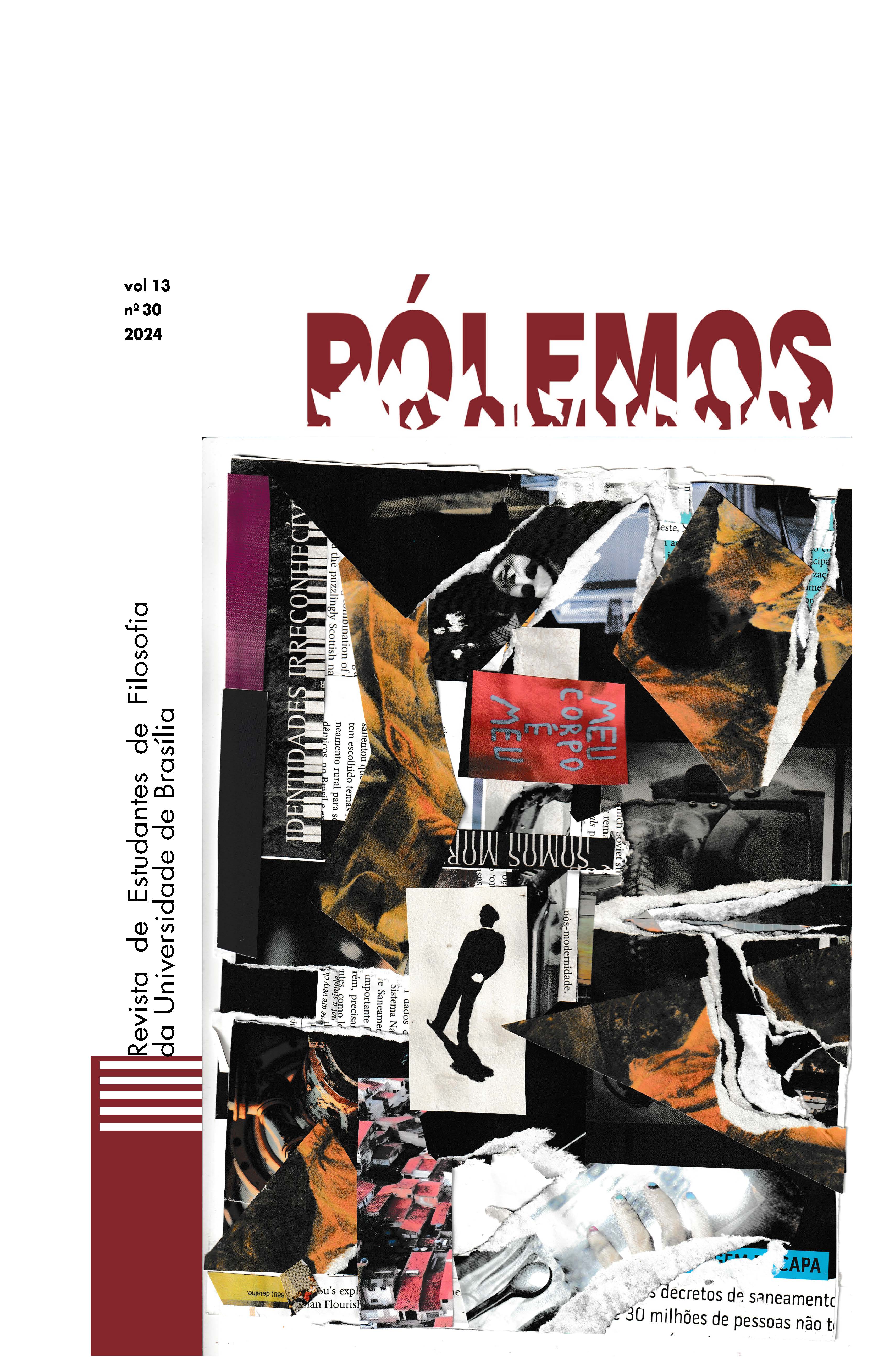DAMAGED SOCIETY
the world in dispute of Marcia Tiburi
Keywords:
Marcia Tiburi. Mundo em Disputa. Codified world. Contemporary philosophy. Dystopia.Abstract
This review focuses on philosophize with the essay Mundo em disputa: design de mundo e distopia naturalizada (2024), by philosopher, writer and visual artist Marcia Tiburi, with two concepts in mind, specifically, both are developed throughout this essay and are very important for the ideas in progress – the concept of world and the concept of patrirracialcapacitalista. For this purpose, between the utopian and the dystopian, we consider part of the social and political context that motivated Tiburi to develop such ideas and, collaterally, we make an approximation between the reviewed book and others essays by the philosopher, for example, Como derrotar o Turbotecnomachonazifascismo (2020). Bearing in mind the constitutive limits of the review, this paper does not value systemic rigidity, but rather essayistic and dialogical intentionality around Marcia Tiburi's philosophy.
Downloads
References
FLUSSER, Vilém. O mundo codificado: por uma filosofia do design e da comunicação. Trad. de Raquel Abi-Sâmara. São Paulo: Cosac Naify, 2007.
LÉVY, Pierre. Cibercultura. Trad. Carlos Irineu da Costa. São Paulo: Ed. 34, 2021.
TIBURI, Marcia. Filosofia prática. Rio de Janeiro: Record, 2014.
TIBURI, Marcia. Mundo em disputa: design de mundo e distopia naturalizada. Rio de Janeiro: Record, 2024.
TIBURI, Marcia. Olho de vidro – a televisão e o estado de exceção da imagem. Rio de Janeiro: Record. 2010.
TIBURI, Marcia. Como derrotar o Turbotecnomachonazifascismo. Rio de Janeiro: Record, 2020.
Downloads
Published
How to Cite
Issue
Section
License
Copyright (c) 2024 PÓLEMOS – Revista de Estudantes de Filosofia da Universidade de Brasília

This work is licensed under a Creative Commons Attribution-NonCommercial-NoDerivatives 4.0 International License.
Todos os trabalhos que forem aceitos para publicação, após o devido processo avaliativo, serão publicados sob uma licença Creative Commons, na modalidade Attribution-NonCommercial-NoDerivatives 4.0 International Public License (CC BY-NC-ND 4.0). Esta licença permite que qualquer pessoa copie e distribua a obra total e derivadas criadas a partir dela, desde que seja dado crédito (atribuição) ao autor / Ã autora / aos autores / às autoras.


